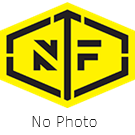edit these instructions at Instructions:Formlabs Form 2 Resin 3D Printer (LovingCosset)
These instructions apply to the Form 2. Form 3 has slightly different procedures for installing the build plate.
Introduction
Stereolithography (SLA) printing uses a laser to cure solid parts from a liquid photopolymer resin. The build plate lowers from the top of the printer, dips into the tank, and the laser selectively cures the layer. The layer then peels back from the bottom of the tank, the build platform lifts, and the wiper mixes the resin to prepare for the next layer.
Safety
Hazards
- 3D printing resin is toxic and can be absorbed through the skin. Exposure is cumulative - you may be fine for several years, then suddenly develop an allergic reaction once the exposure reaches a critical threshold
- Resin can splash when pouring and damage skin or blind the user
- IPA can splash when pouring and blind the user
- 3D printing resin fumes are toxic
PPE
- Wear gloves at all times
- Wear safety goggles (full seal) when pouring resin (eg from the tank back into the cartridge)
- Wear safety glasses when removing support materials
- The Lifebreath HRV (3DP) will protect you against fumes
Avoiding Equipment Damage
- If the tank is removed before the build platform, liquid resin can drip from the build platform onto the optical surfaces inside the printer. Always remove the build platform before removing the tank. In case of spills, contact maintenance staff to clean the optical surfaces.
- Each tank has an optical surface on the bottom and top that must not get dirty. Always handle tanks from the sides - NEVER touch the bottom or top.
- The tank optical surfaces are sensitive and must be cleaned with care. NEVER use a metal scraper to remove cured resin from the tank. Do not use isopropyl alcohol or paper towels to clean the bottom of tanks.
Housekeeping
- Clean the area of any loose support materials
- Wipe down the control panel with an IPA-moistened paper towel
- Wipe down tools and wash station mat with IPA-moistened paper towel
- Ask maintenance staff for assistance cleaning any optical surfaces (bottom and top of the tank, mirrors)
- When swapping out materials, put the tank and cartridge into the appropriately labelled tupperware bin
- If you bring your own materials, store them on the shelf below and to the left of the resin printers. Make sure they are clearly labelled
Consumables
North Forge supplies resin and invoices members at {some amount} per mL:
- Always include your name in the file name that you send to the printer.
- If you bring your own materials, include that information in the file name (ie "JohnHOwnMatl").
- Always fill out the consumables sheet beside the computer. Include the material type and amount used. All material costs the same amount.
- If the consumables sheet is missing or full, post your usage on the consumables channel on Slack and ask for the sheet to be replaced.
- If you get a "low resin" warning when trying to print, post in the consumables channel on Slack to ask for more.
- Members can bring their own resin but use North Forge tanks, in which case they will be charged {a lower amount} to account for tank wear and tear.
- Members can bring their own tank and resin, in which case they will only be charged {a much lower amount} to account for power, IPA use, and general wear and tear.
Operations
Preparing a file
Using the Printer
Changing Resin
This section needs a photo showing the position of the wiper when storing the tank.
It is important to filter the resin when changing it, to prevent partly cured resin/debris from clogging the fill nipple.
Removing tank and cartridge
- Put on PPE (gloves, goggles).
- Remove the build plate to avoid dripping resin inside the printer.
- Remove the cartridge and unscrew the cap.
- Load a cone filter and funnel into the cartridge neck. Set aside.
- Pull the wiper towards the front of the tank and lift upwards to remove. Rest the wiper against the edge of the tank.
- Holding from the sides, pull the tank towards you and lift upwards. Do not touch the bottom of the tank.
- Using the fill spout at the back of the tank, pour the excess resin through the filter and back into the cartridge.
- Using gloved hands or a plastic scraper, remove any remaining debris and discard.
- Remove the funnel and discard the cone filter. Replace the cap.
- With the wiper resting against the right side of the tank, put a plastic cover on the tank.
- Put the tank and cartridge in the appropriate labelled plastic bin.
Installing
- Put on PPE (goggles, gloves)
- Remove the plastic cover from the tank and place it in the plastic bin.
- Align the tabs on the bottom of the tank with the keyhole slots in the platen.
- Push the tank towards the back of the printer. The printer should automatically recognize the tank and show a "Tank inserted" message.
- Align the tab on the bottom of the wiper with the keyhole slot on the wiper arm.
- Push the wiper towards the back of the printer.
- Insert the cartridge into the back of the printer.
- Open the cartridge vent.
Starting a Print
Cleaning a Print
Curing a Print
Troubleshooting
Resin is not flowing
Printer does not recognize the tank
Printer does not recognize the cartridge
Print has failed
Printer has disconnected from the network
